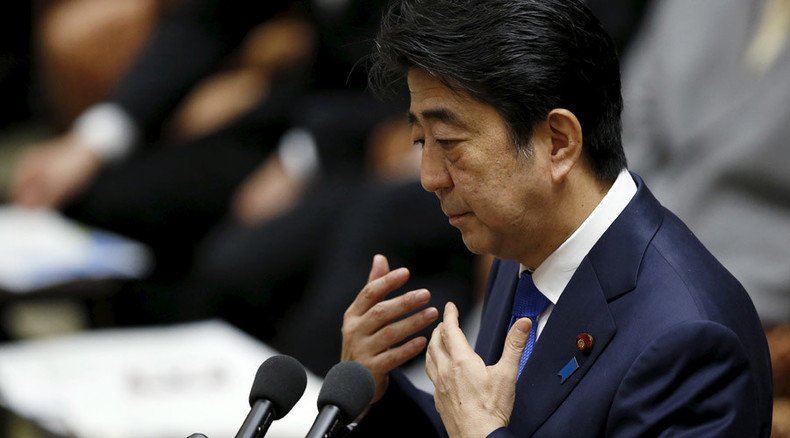US spied on Japanese govt, companies, passed intelligence to Australia, New Zealand

Washington spied on its key ally, Japan, and passed intelligence on to Australia, New Zealand, Canada and the UK, WikiLeaks has revealed. The NSA targeted 35 high-ranking Japanese officials and top companies, and also tracked trade negotiations.
After dismantling the illusion of US relations built on mutual trust with Brazil and its European allies, Germany and France, WikiLeaks has turned to the Asian activities of the NSA. In a press release published on Friday, the website revealed “Target Tokyo” – a list of 35 of the US National Security Agency’s “top secret” targets.
NSA's latest must spy terror suspects: Japan's Central Bank, Finance Ministry, Trade Negotiators and... Mitsubishi https://t.co/2SobMKvbYo
— WikiLeaks (@wikileaks) July 31, 2015The list includes Japanese Cabinet officials, major banks, and top Japanese companies, such as the natural gas division of Mitsubishi and the petroleum unit of Mitsui. There were also intercepts about “sensitive climate change strategy” and the “content of a confidential prime ministerial briefing that took place at Shinzo Abe’s official residence,” according to WikiLeaks.
READ MORE: WikiLeaks: NSA spied on German FM for years, ‘helped CIA to kidnap and torture’
“The lesson for Japan is this: do not expect a global surveillance superpower to act with honour or respect. There is only one rule: there are no rules,” Julian Assange, WikiLeaks editor-in-chief, said in the press release.
Japan is America’s closest ally in the Asia-Pacific region. They closely cooperate in trade and defense. Yet, according to the whistleblower website, some of the NSA reports were released to Australia and New Zealand, as well as to Canada and the UK – the members of the “Five Eyes” intelligence alliance.
READ MORE: US a surveillance superpower spying on foes & allies alike – Assange
If the allegations are confirmed, Tokyo will protest the NSA’s spying activities, which date back to 2006, Kyodo news agency reported, citing sources in the Japanese government. However, it is “unlikely to have a major impact on the core of Japan-US relations,” Yoshinobu Yamamoto, a professor of international politics at the University of Niigata Prefecture, told AFP, a French news agency.
The revelations come as Japan is embroiled in a heated debate regarding a recent move by Prime Minister Shinzo Abe which is set to expand the role of the country’s military forces. The shift in policy has been greeted by Washington, but is regarded as controversial by Japan’s neighbors and the Japanese public.
“I think some interest groups and opposition parties will use this news to stick a spoke in the government’s wheel,” Celine Pajon, a Japan specialist at the French Institute of International Relations, told AFP.
READ MORE: NSA spied on Brazil’s President Rousseff, dozens of top officials – WikiLeaks
While the prime minister’s phone wasn’t on the wiretapping list, WikiLeaks said that Trade Minister Yoichi Miyazawa and Bank of Japan governor Haruhiko Kuroda appear to have been direct targets NSA surveillance.
Latest @wikileaks#NSA cables may delay #TPP negotiations http://t.co/8XU7vh3wenpic.twitter.com/dDaIy15BRJ
— WikiLeaks (@wikileaks) July 31, 2015This report is particularly significant in wake of the commencement of the latest round of negotiations over the Trans-Pacific Partnership trade agreement this week. Ministers of 12 countries in the region, including the US and Japan, the largest economies participating in the talks, have gathered on the Hawaiian island of Maui to discuss a free-trade bloc that would encompass about 40 percent of the world’s economy.












